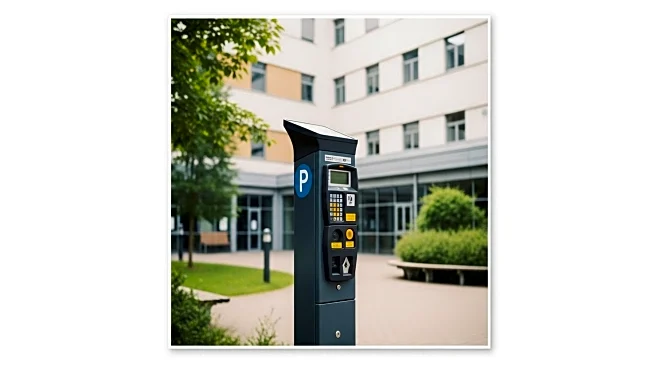What's Happening?
The United Lincolnshire Hospitals NHS Trust is projected to generate nearly £1 million in additional revenue this year following an increase in car parking charges at its facilities. This information was disclosed through a Freedom of Information request. The trust, which operates sites in Lincoln, Boston, and Grantham, raised parking fees last month. The new charges are expected to result in more than £2 million in revenue for the 2025/26 financial year, marking a 78% increase compared to the previous year. The trust has stated that the additional funds will be used to enhance parking facilities at its hospitals.
Why It's Important?
The increase in parking charges by the United Lincolnshire Hospitals NHS Trust is significant as it highlights the financial strategies employed by healthcare institutions to manage operational costs and improve infrastructure. This move may impact patients and visitors who rely on hospital parking, potentially creating a financial barrier for some. The additional revenue is intended to improve parking facilities, which could enhance accessibility and convenience for hospital users. However, the decision may also spark discussions on the balance between generating revenue and maintaining affordable access to healthcare services.
What's Next?
The United Lincolnshire Hospitals NHS Trust may face scrutiny from patients and advocacy groups concerned about the affordability of hospital access. Stakeholders might call for transparency in how the additional revenue is utilized, ensuring that improvements to parking facilities are effectively implemented. The trust may also need to address public concerns and explore alternative solutions to mitigate the financial impact on patients and visitors.
Beyond the Headlines
The decision to increase parking charges raises broader questions about the funding models for public healthcare services and the ethical considerations of charging for essential access. It may prompt discussions on the sustainability of relying on ancillary services for revenue generation and the potential need for policy reforms to ensure equitable access to healthcare facilities.












